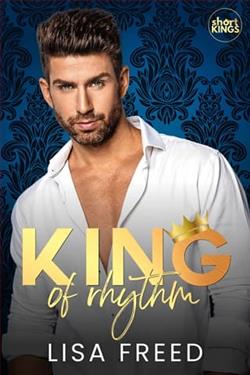Page 14 of Falling Princess
I hope Lorcan is a more effective knight than his father was; otherwise, I might not live long enough to become queen—and that will be the end of our country, if you believe the legends.
So far, so good, I thought sourly, remembering the club in Beijing.
“I understand, Father. I promise I won’t seek out trouble.”
Conflict was written on his face, as though my father wanted to tell me something. I wish he would say whatever it is. I handled the news of Lorcan’s father, didn’t I? I’m capable of so much more than he trusts me with.
Maybe having to be queen one day wouldn’t be such a daunting prospect if I didn’t feel like I was being set up to fail. My mother was beloved by her people before she died. My father’s been coasting on her reputation for nearly a decade. There’s no denying that while he’s respected, he isn’t deeply admired the way she was.
Even if I felt well-prepared to take the throne, which I don’t, I know I’ll never measure up to my mother’s memory. As proof, just look at how badly I’ve failed at playing High Priestess.
“Trouble will find you, Zosia. You don’t have to go looking for it.”
I have no idea what he means. Nothing excitingeverhappens to me, by design.
My father took my gloved hand and patted it between his great paws. He was, once, a warrior. Protecting the queen is the king’s traditional role in Auralia. His skin on mine is soft and as plump as my little mossy frog.
“Just be kind to your knight protector, Zosia. Please. For my sake.”
I nodded once, unable to find words. Soaking in the pitiful contact.
“We ask a great deal of you. You’re a good princess.” My father pushed up from his chair and bent to press a kiss on my forehead. “I could not ask for a better daughter. Auralia could not ask for a better princess than you.”
Well, that’s sad for everyone involved.
His compliment chilled my soul. I summoned a smile, curtsied, and took my leave.
The instant I passed over the threshold of my father’s receiving rooms, Lorcan fell into step three paces behind me, a silent shadow trailing me back to my private quarters. Neither of us spoke a single word—not then, and not for days afterward.
TINDER
CHAPTERFIVE
We left the castle before daybreak, heading north, up the steep foothills of Chióni and Vatira, the Mountains of Fire and Ice. Three mountains border northwestern Auralia. The farthest north is the Mountain of Ice, beneath which, the Folk mine ore and live in caverns carved into the volcanic rock.
The center mountain is an active volcano spitting streams of red lava down the exterior. Between them is a narrow pass, the only way into the interior, with a strip of black sand along the foot. You’d have to be desperate to land there, if you didn’t know what was beyond that frightening rise.
Although I don’t believe the original Auralia who led a ragtag tribe of people across continents and seas to this island thousands of years ago was, in fact, a goddess, there’s no denying she was a brave woman. Smart, too. The cloud-shrouded volcano has deterred outsiders for millennia.
If it ever explodes, we’re all in a world of hurt. The Mountain Folk—guardians of the pass—would give us warning to run if they detected trouble.
Today, we stopped at the wrought metal doors to their domain.
Keryn, their leader, opened it and greeted me with a perfunctory bow. It’s a bit ridiculous, a huge, red-haired person in their prime, with the pelt of a maned tiger for a cloak, complete with the head, deferring to young, comparatively short, me. At 172 centimeters, I’m not Raina-petite, but I keenly felt my youth and slight build.
“Princess Zosia. Welcome to our domain.”
“It is an honor.”
“Your aircraft arrived this morning. You may use the underground passageway to shorten your journey.”
I bowed. “A courtesy we greatly appreciate, Leader.”
Although I am the princess—one day, queen—of the entire country, there are two other largely independent tribes. The Mountain Folk don’t recognize gender, for reasons that are lost to history but likely had something to do with a break in the traditional matrilineal line of succession. Or, perhaps, they decided that if they didn’t give men a more significant role in leadership, they would rebel. At any rate, Keryn is clearly female, but to refer to them asshewould be rude in the extreme.
Not so Bashir. Even at the Olympics earlier this summer, he was perfectly comfortable being called by masculine pronouns, to my surprise. But now I was confused as to how to greet him.
“Bashir, my friend,” I finally said, gravely.















